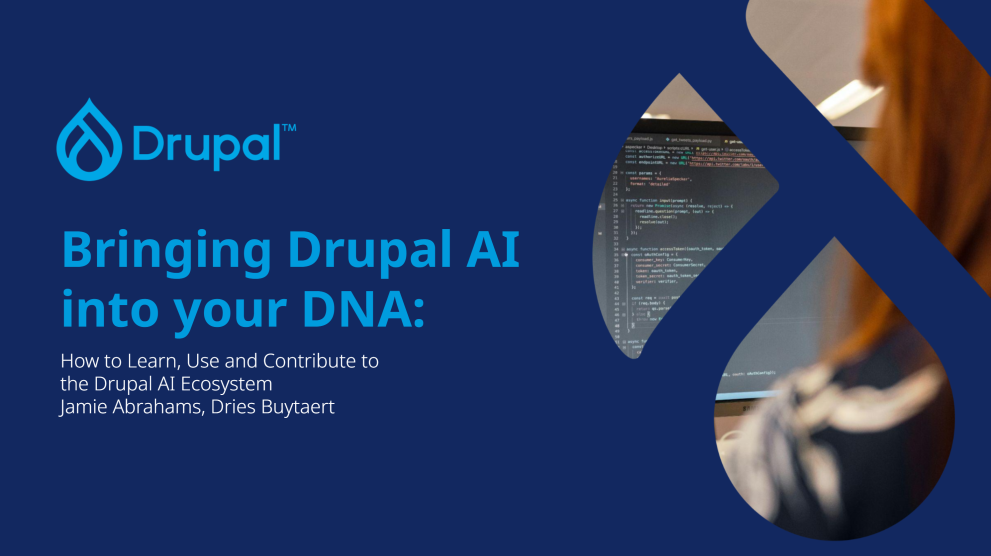
Artificial Intelligence is changing everything. It is shaping the way we build websites, how we think about content, how we interact with information, and even how we organise innovation itself. The organisations that will succeed in this new reality are those that place AI at the very centre of their work, with people at all levels who understand its value and know how to put it into practice.
This message was at the heart of a webinar hosted by Dries Buytaert, the founder of Drupal, and Jamie Abrahams, maintainer of the AI module and lead of the Drupal CMS AI track. Their call was clear: the time has come to move from simply using AI tools to becoming active participants in building the AI ecosystem. By doing so, we gain skills, strengthen innovation, and ensure that AI develops in ways that are open, transparent, and beneficial to all.
The session set out a vision for the Drupal AI ecosystem. At its core lies the AI module, which offers a plugin-based system for connecting Drupal to different AI providers. This modular design ensures openness, choice and flexibility, avoiding dependency on a single vendor. Already, the module enables a range of practical uses: automatic content generation and translation, accessibility improvements such as creating alternative text for images, and intelligent search functions that go far beyond traditional keyword matching. Work is also under way to develop “AI agents” — modular tools that can perform a sequence of tasks in response to a user’s goal, such as creating a webpage, improving it for search, and planning its publication.
Equally important are the principles behind this work. Every AI action within Drupal is logged, auditable, and keeps people in control. The initiative is built on trust, transparency, and user choice. This approach reflects broader European values of digital sovereignty and open infrastructure. It allows public bodies, businesses, and communities to use AI without being locked into closed systems, while at the same time building their own capacity and resilience.
The roadmap ahead is ambitious. Future developments include deeper integration with Drupal’s Experience Builder, adoption of emerging standards such as the Model Context Protocol, and expanded training for users and developers. A whole series of talks and workshops will guide people step by step — from installation and search, to creating agents and exploring more advanced use cases.
Everyone is invited to play a part. Testers can try out the tools and share feedback. Developers can extend the module with new features and providers. Enthusiastic community members can create tutorials, support translations, and help spread knowledge. Whatever the level of expertise, there is room to contribute. This reflects the open and collaborative nature of Drupal itself — an ecosystem that grows stronger as more people take part.
The webinar made it clear that embracing AI is no longer optional. The choice we face is whether to consume AI passively or to help shape it actively. For Drupal, and for the wider digital community, the path forward is about learning, using, and contributing together. By embedding AI into our collective DNA, we ensure that it develops in a way that is innovative, inclusive, and aligned with our values.
Details
- Publication date
- 10 June 2025
- Author
- Directorate-General for Digital Services
Contacts
- Organisation
- European Commission
- Monika [dot] VLADIMIROVA
 ec [dot] europa [dot] eu
ec [dot] europa [dot] eu
